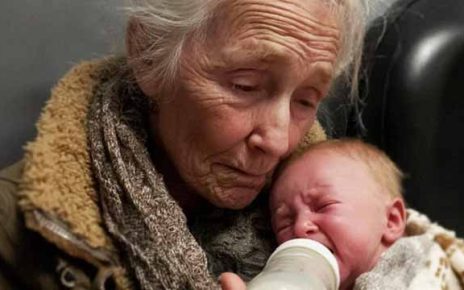Our Granddaughter Sent Us a Note with Disgusting Text Demanding $5000 — So We Decided to Teach Her a Lesson
Our Granddaughter Sent Us a Note with Disgusting Text Demanding $5000 — So We Decided to Teach Her a Lesson
When my granddaughter Sarah shared her wedding plans, my husband Jim and I were thrilled. We eagerly began discussing how we could help make her big day special. However, our excitement quickly turned to shock when a letter arrived from Sarah a few days later.
The letter contained a $5,000 quotation for a vacation she wanted with her fiancé, along with a note that stung deeply: “I want a vacation with my fiancé on my birthday this year. Pay for it. I hope you saved up enough after years of cheap trash gifts for me.”
This request was a harsh blow, given all we had done for Sarah over the years. We’re not wealthy, but we’ve always tried to support her as much as we could. We’ve given her handmade quilts, heirloom jewelry, and even helped with a down payment for her car and college expenses. We thought these gifts meant something to her.
Sitting at our kitchen table, the letter in front of us, I was overwhelmed with a mix of anger and hurt. “Can you believe this?” I asked Jim, struggling to hold back tears. “After everything we’ve done for her?”
Jim, too, was deeply disappointed. “This is just plain wrong,” he said. “We’ve given her so much, and this is how she repays us?”
Despite our sadness, a resolve began to grow within me. “We can’t let this go,” I said. “She needs to understand that her actions have consequences.”
Jim agreed. Together, we decided to collect everything we had ever given Sarah. It was a difficult decision, but we felt it was necessary to teach her a lesson in gratitude and respect.
We started in the attic, where we had stored the quilts I had made for Sarah. Each quilt represented countless hours of work, made with love. We carefully packed them into a box, hoping that one day she might realize their true value. Next, we moved to the guest room where Sarah often stayed. There, we gathered the heirloom jewelry I had given her over the years—pieces with rich history and personal significance. Finally, we collected photographs and mementos from family trips and holidays, each one a reminder of the joyful moments we had shared.
Our final step was to withdraw our financial support for Sarah’s wedding. We contacted the wedding planner and explained our decision. It was a painful move, but we refused to be taken for granted any longer.
We also wrote Sarah a letter, hoping it would make her reflect on her actions:
“Dear Sarah,
Your recent letter hurt us deeply. We have always given you our love and support, not out of obligation, but out of love. Your words and actions show a lack of gratitude and respect that we cannot ignore. We hope this difficult experience will help you reflect on your behavior and learn the importance of appreciation and humility. Love isn’t about material gifts; it’s about valuing the people who care for you. We hope you understand our decision and take this opportunity to grow.
Love always,
Grandma and Grandpa”
With heavy hearts, we then donated the items we had collected to an orphanage. The next day, Sarah called us, furious. “How could you do this to me? You’re supposed to love and support me! You’re ruining my wedding and my life!”
Trying to stay calm, I responded, “Sarah, we do love you. But love is not about giving in to every demand. It’s about helping you become a better person. You need to learn gratitude and respect.”
She hung up, leaving us in silence. We knew our decision would hurt her, but it was still difficult to hear her so angry. In the days that followed, word spread through the family. Some relatives sided with Sarah, while others supported our actions.
Despite the fallout, Jim and I stand by our decision. We hope that, in time, Sarah will reassess her attitude and learn the importance of appreciation and respect. Love is not about indulging every whim; it’s about guiding loved ones toward growth and maturity.




